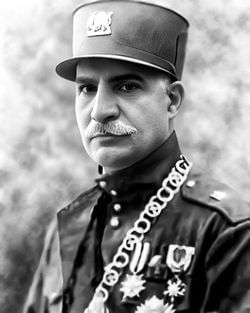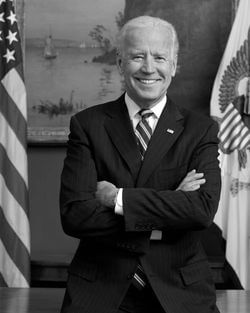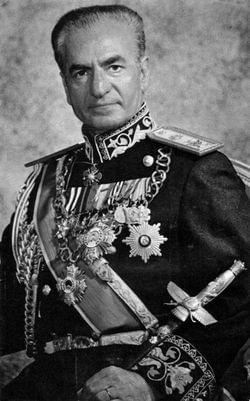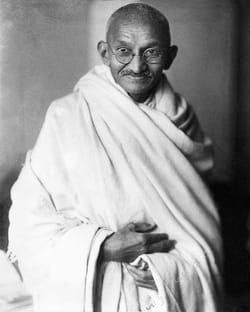_Restoration.png?bossToken=b1b3707a552c02aeb3e317ba39618becfc60bdf8dee242348e1d19b131556ec5)
Photo Attribution: Thomas Sully, Public domain, via Wikimedia Commons
Andrew Jackson
This example has been viewed 838x times
Summary
Rodden Rating
Analysis for Andrew Jackson
Biography
Andrew Jackson (March 15, 1767 – June 8, 1845) was an American lawyer, planter, general, and statesman who served as the seventh president of the United States from 1829 to 1837. Before being elected to the presidency, he gained fame as a general in the U.S. Army and served in both houses of the U.S. Congress. Although often praised as an advocate for ordinary Americans and for his work in preserving the union of states, Jackson has also been criticized for his racial policies, particularly his treatment of Native Americans.
Jackson was born in the colonial Carolinas before the American Revolutionary War. He became a frontier lawyer and married Rachel Donelson Robards. He briefly served in the U.S. House of Representatives and the U.S. Senate, representing Tennessee. After resigning, he served as a justice on the Tennessee Supreme Court from 1798 until 1804. Jackson purchased a property later known as the Hermitage, becoming a wealthy planter who owned hundreds of African American slaves during his lifetime. In 1801, he was appointed colonel of the Tennessee militia and was elected its commander the following year. He led troops during the Creek War of 1813–1814, winning the Battle of Horseshoe Bend. The subsequent Treaty of Fort Jackson required the Creek to surrender vast tracts of present-day Alabama and Georgia. In the concurrent war against the British, Jackson's victory at the Battle of New Orleans in 1815 made him a national hero. He later commanded U.S. forces in the First Seminole War, which led to the annexation of Florida from Spain. Jackson briefly served as Florida's first territorial governor before returning to the Senate. He ran for president in 1824, winning a plurality of the popular and electoral vote, but no candidate won an electoral majority. In a contingent election, the House of Representatives elected John Quincy Adams with Henry Clay's support. Jackson's supporters alleged that there was a "corrupt bargain" between Adams and Clay and began creating their own political organization that would eventually become the Democratic Party.
Jackson ran again in 1828, defeating Adams in a landslide. In 1830, he signed the Indian Removal Act. This act, which has been described as ethnic cleansing, displaced tens of thousands of Native Americans from their ancestral homelands east of the Mississippi and resulted in thousands of deaths. Under Jackson, the integrity of the federal union was challenged when South Carolina threatened to nullify a high protective tariff set by the federal government. He threatened the use of military force to enforce the tariff, but the crisis was defused when it was amended. In 1832, he vetoed a bill by Congress to reauthorize the Second Bank of the United States, arguing that it was a corrupt institution that benefited the wealthy. After a lengthy struggle, he and his allies dismantled the Bank. In 1835, Jackson became the only president to pay off the national debt. He also survived the first assassination attempt on a sitting president. In one of his final presidential acts, he recognized the Republic of Texas.
In his retirement, Jackson stayed active in politics. He supported the presidencies of Martin Van Buren and James K. Polk, as well as the annexation of Texas, which was accomplished shortly before his death. Jackson's legacy remains controversial, and opinions on him are frequently polarized. Supporters characterize him as a defender of democracy and the constitution, while critics point to his reputation as a demagogue who ignored the law when it suited him. Scholars and historians have consistently ranked Jackson's presidency as significantly above-average, although his reputation among experts has significantly declined since the late 20th century.
Source: https://en.wikipedia.org/wiki/Andrew_Jackson
Raw Data
Horoscope Data
Comments
Natal Data
1767-03-15 12:56:00 GMT
34° 55′ 28.5″ N 80° 44′ 36.2″ W
Waxhaw, NC 28173, USA



















































.jpg?bossToken=54c54a97d37ac5ce7f6026854dac03f686a4eeb352f2796c21bf6177b91c42f1)
_(cropped).jpg?bossToken=4ea5dbc58f54ca4b9bb4967924906842049db90b85bee8a1879b2bee1fd131fe)





.png?bossToken=888da274b11267f9b07d8152fcadef3c87a2bd2cb8859b2b1ccdc69744103a4b)




